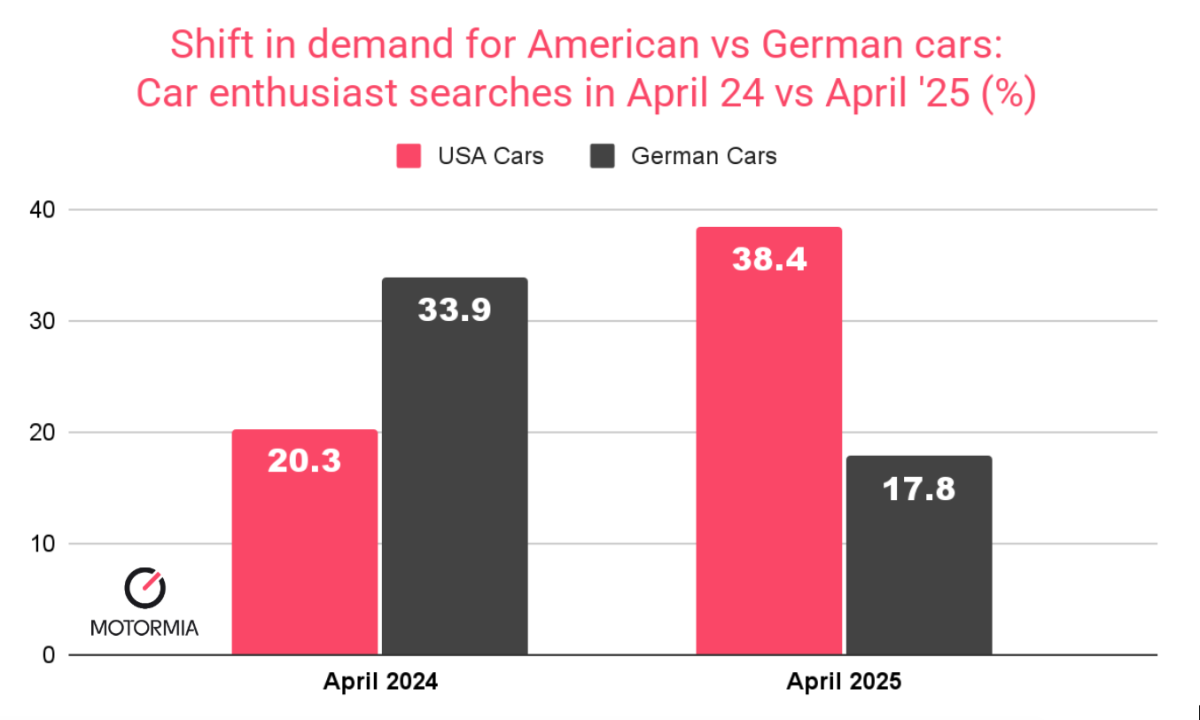Trends Shaping the Car Search Landscape

Lately, there’s been a noticeable shift in the way folks are searching for cars online. According to new intel from MOTORMIA, a platform known for helping car enthusiasts with vehicle modifications using AI, something interesting is happening. Searches for German cars, which have always been a staple, plummeted by 52% this April compared to last year. To put that in perspective, German brands made up a third of all searches around this time last year. But the tides are changing, and there’s been an 89% uptick in searches for American vehicles during the same period. This data comes straight from over 100,000 U.S. users, who typically begin their searches by specifying a model instead of a brand or country. While curiosity about Japanese cars remained steady, the swing away from German cars might connote a broader market shift. After all, last year, 73% of the EU’s car exports to the U.S. were from big German players like BMW, Mercedes-Benz, and Volkswagen, according to sources like Reuters.
Isaac Bunick, CEO of MOTORMIA, mentioned to Autoblog that this new data points to a significant shift in enthusiasm towards German cars. Last year, German brands like BMW, Porsche, and Mercedes featured in more than a third of searches. This year, it dipped below 18%. Be it tariffs in play or a rise in American patriotism, the twist is indeed intriguing. In fact, American models like those from Ford and GM shot up in searches and composed 38% of all queries on MOTORMIA this past April. To zoom out, BMW saw a 25% dip in first-quarter profits for 2025, while American giants like Ford and GM boasted impressive double-digit growth.
Auto Tariff Talks

Now, there’s a potential game-changer on the horizon. If the European Union strikes a successful tariff-negotiation deal with the U.S., which would allow American cars into Europe tax-free in exchange for a similar agreement for German cars in the U.S., searches could swing back in favor of German automakers. The numbers are stark—the $44.25 billion worth of cars exported from Europe to the U.S. last year was quadruple the volume heading the other way. Though the U.S. ranks fifth in car export destinations for Europe, it’s number one for German vehicles. Volkswagen’s Oliver Blume even had a direct meet-up with U.S. Commerce Secretary Howard Lutnick to discuss these matters, highlighting the stakes involved.
Looking Ahead
Beyond the numbers, what this really underscores is how global politics can influence car enthusiasts’ preferences. Despite the shifting preference to American cars showing a strong rise, the steady interest in Japanese models introduces another layer of complexity. Ford and other U.S. carmakers are riding high on domestic sales, but any swift tariff resolution between the U.S. and Germany might reignite interest in German models. Timing could be key here, especially as the market continues to adjust and respond to these larger global trade talks. It’s definitely something to keep an eye on for those interested in the auto industry’s next moves.
Buick Electra E5 Awaits
Apple CarPlay Revamp
Tesla vs Chicken Roadshow
Rivian R2 Electric SUV
Enyaq RS Unleashed